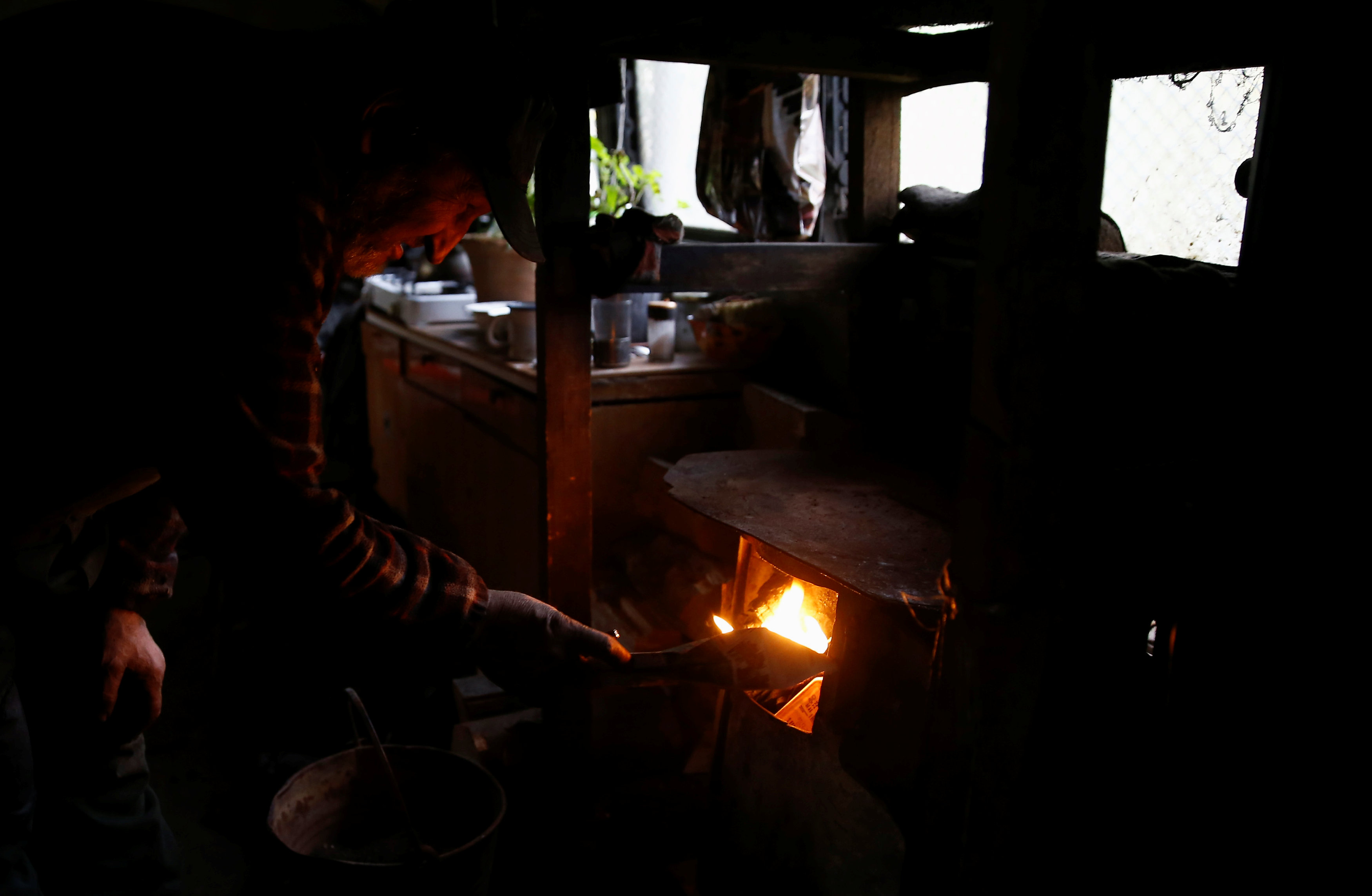Image: Charcoal burner Zygmunt Furdygiel fires wood stove inside his hut at a charcoal making site in the forest of Bieszczady Mountains, near Baligrod village, Poland October 27, 2016.
BALIGROD, Poland (Reuters) – In a Polish mountain forest, Zygmunt Furdygiel spends four hours loading logs of beech wood into a large furnace, then lights up the pile and leaves the wood to burn.
Furdygiel is one of just a few charcoal burners still operating in the Bieszczady mountain range of southeastern Poland, where he regularly piles wood into some four furnaces, known as ‘retorts’, to produce the black carbon.
“It smokes for two days then cools for another two days,” said the 69-year-old, who has worked as a charcoal burner for more than 40 years. “On the fifth day, I take out the charcoal.”
According to the regional office for Poland’s national forests, just 16 years ago there were more than 50 such charcoal burning bases in Bieszczady equipped with more than 600 retorts.
Today there are fewer than 10 with around 40 retorts due to cheaper imports from neighboring countries such as Ukraine.
“There are ever fewer charcoal burning places and there are fewer and fewer of us burners,” Furdygiel said. “Little by little, we are becoming history.”
While working, Furdygiel lives alone in a small hut with just his cats. He visits his wife during breaks.
“I am not lonely,” he said. “(I am) without electricity, without internet … The sun shines during the day, at night the moonlight.”
He works for a local company and can produce around a tonne of charcoal from each furnace, which has a roof hatch and smaller chimneys. The charcoal is mostly for export.
“At first it burns with an opening (in the roof). When the fire is well lit, I close the roof hatch,” he said.”It is called dry distillation – the water and smoke evaporate to make the carbon. When the smoke is white, it produces coal, when the smoke is blue it produces ash.”
Local manufacturers fear their numbers may fall further as they say anyone who produces from 1 to 100 tonnes will now have to register with the European Chemicals Agency, paying a fee as well as the cost of analysis of their product for chemical substances. For some, they say it could be a hefty sum.
“We are being hit by cheap charcoal from the east on the one hand and by EU regulations on the other,” said one producer in Bieszczady who declined to be named.
“If I want to continue production, I need to invest and it does not pay back nowadays.”
For now, Furdygiel keeps busy.
“When one furnace is burning, another is cooling,” he said. “I unload a third one, load it and start again from the beginning.”
(Reporting By Reuters Television; additional reporting by Kacper Pempel; Writing by Marie-Louise Gumuchian; Editing by Gareth Jones)
Copyright 2015 Thomson Reuters. Click for Restrictions.


